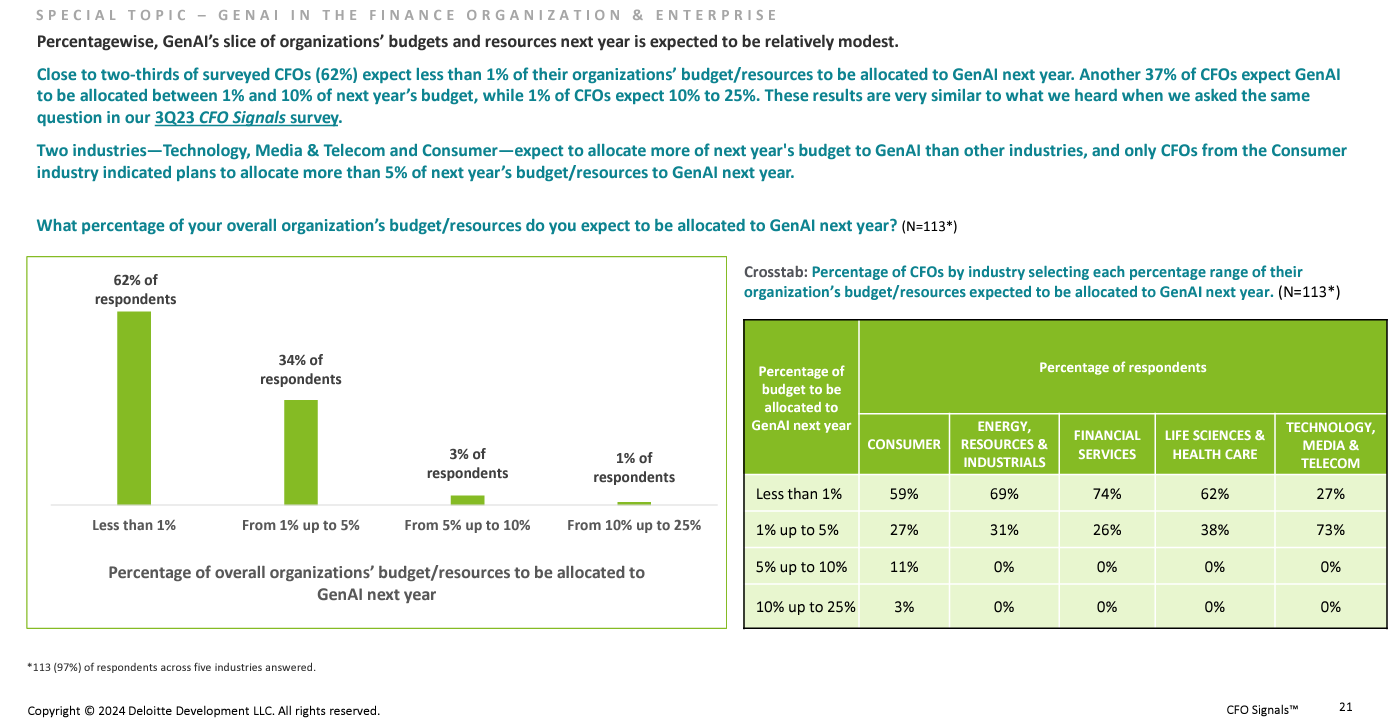
A recent survey conducted by Deloitte’s CFO Signals revealed that 62% of CFOs reported that their organizations are planning to allocate less than 1% of their corporate budgets to generative AI in the upcoming year. Additionally, 37% of CFOs expect between 1% to 10% of budgets to be dedicated to generative AI initiatives.
These findings shed light on the fact that enterprise adoption of generative AI has been slower than anticipated, despite extensive media coverage and vendor announcements. Particularly, consumer companies are leading the way by planning to allocate more than 5% of their budgets to generative AI projects. Moreover, a significant 58% of CFOs stated that their boards are encouraging adoption of generative AI within the enterprise.
One interesting aspect highlighted in the report is that CFOs are hopeful for increased productivity gains from using generative AI, with 70% expecting a 1% to 10% boost in productivity, while 13% anticipate even higher gains. Productivity emerges as the preferred metric for measuring returns on generative AI, with CFOs from larger companies forecasting the largest productivity improvements.
Looking ahead, CFOs are focusing on assessing generative AI’s impact on workforce productivity and cost savings. The survey highlighted that 24% of CFOs are unsure how to value generative AI or lack measurement tools. In terms of functional areas within the enterprise, CFOs identify IT, business operations, customer service, finance, and sales and marketing as prime candidates for generative AI transformation.
The CFO Signals survey data coincide with other key themes, including CFOs’ attitudes towards risk-taking, perception of equity markets, optimism regarding financial prospects, and views on global economic conditions. Amid these various takeaways, it is clear that CFOs are cautiously optimistic about the potential benefits of generative AI in driving productivity and cost efficiencies within their organizations.

